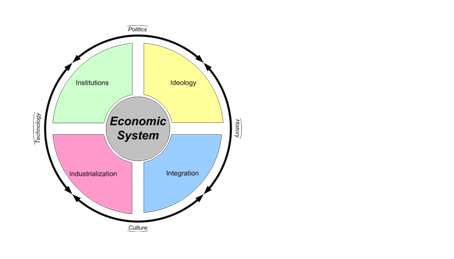Back to: ECONOMICS SS2
Welcome to class!
In today’s class, we will be talking about the economic concept. Enjoy the class!
Economic Concept

The definition of economics systems
Economic systems, we mean the various means through which different countries in the world have chosen to distribute resources within its citizens as well as trade their goods/services with members of the global community. Economic Systems are also used by countries to control the five factors of production namely- labour, capital, land, raw materials and entrepreneurship. In other words, the different Economic Systems that abound have different (and oftentimes opposing) views as to how the factors of production should be utilized.
Types of economic systems and their characteristics
- Capitalism
- Socialism
- Mixed Economy
- Welfarism
Capitalism: This is an economic system that is based on the private ownership of all the means of production. Business operations in a capitalist economy are mainly for-profit. The central characteristics of a capitalist economic system include the following-
- Private property
- Capital accumulation
- Wage labour
- Voluntary exchange
- A price system
- Competitive markets
Note also that in a capitalist economic system, all business-related decision making and investments are determined by the owners of the factors of production; although the prices and the distribution of goods are mainly determined by market forces.
Socialism: Socialism is an economic system that is characterized by social ownership and often democratic control of all the means of production. Socialist economic systems can be divided into the following- non-market and market forms. The non-market social-economic system involves the substitution of markets and money factors with engineering and technical criteria based on calculation performed in-kind. This thereby results in an economic mechanism that functions according to different economic laws from those of capitalism. On the other hand, non-market socialism aims to circumvent the inefficiencies and problems often associated with capitalism. Below are some of the features of a socialist economic system-
- Public ownership of the means of production
- Planned economy
- Classes of society
- The state is responsible for catering to all the needs of citizens
- Equal opportunities for everyone
- Absence of competition and limited product choices
- Pricing Mechanism
Mixed Economy: A mixed economy is defined as an economic system consisting of a mixture of either markets and economic planning, public ownership and private ownership, or markets and economic interventionism. However, in most cases, “mixed economy” refers to market economies with strong regulatory oversight and governmental provision of public goods, although some mixed economies also feature a number of state-run enterprises. The features of a mixed economic system are briefly explained below-
Resource ownership
In a command economy, all resources are owned and controlled by the state. In a mixed system, though, private individuals are allowed to own and control some (if not most) of the factors of production. Free market economies allow private individuals to own and trade, voluntarily, all economic resources.
State intervention
Government intervention and political self-interest play a key role in a mixed economy. This intervention can take many forms, including subsidies, tariffs, prohibitions and redistributive policy.
Some of the most universally applied mixed economic policies include legal tender laws, monetary control by a central bank, public road and infrastructure projects, tariffs on foreign products in international trade and entitlement programs.
Changing economic policy
One important and understated feature of a mixed economy is its tendency for reactionary and purposeful economic policy changes. Unlike in a command economy (where economic policy is very often directly controlled by the state) or a market economy (market standards arise only out of spontaneous order), mixed economies can go through dramatic changes in the “rules of the game,” so to speak.
Factors to be considered when adopting an economic system

In our next class, we will be talking about Labour Market. We hope you enjoyed the class.
Should you have any further question, feel free to ask in the comment section below and trust us to respond as soon as possible.

Please we need practicing questions after each topic to be practice tt
I Enjoyed the Lesson